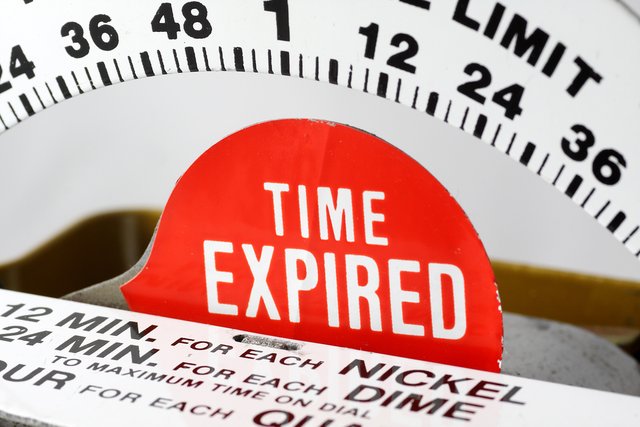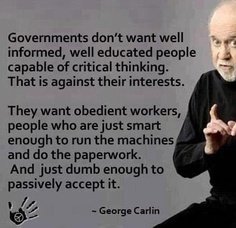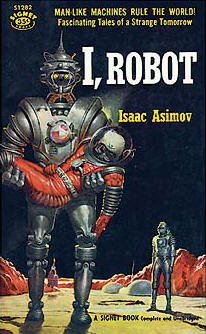Response to @positive: Anarchism Not for The Individual #debate - #politics - #anarchism - #debate - #democracy
Still perhaps too long, but TL;DR version HERE if you don't have willpower for this one. :)
@positive and I have what I find to be an interesting debate going on that began HERE.
He responded with THIS post which is well formatted and thought out. I thought I should do the same so I too could leverage the full capabilities of the editor.
The quotes here are from @positive.
Although, I have no problem with representative government, more specifically a system of delegated technocracy. Where the educated and informed make decisions based on modelling that would fit their background such that their personal interests can be assumed to be aligned with that of the people they're representing.
Though I support a representative technocratic democracy.
Technocratic Democracy. I actually am with you there. If we could come up with some inviolable rules to prevent corruption then such a thing might work. This rarely comes up when I hear contemporary discussions, and I don't think you mentioned Technocratic Democracy in your initial post. If you did, I missed it. :)
However, I too have written about how we could make voting work using something like a block chain, or encrypted key that was unique per citizen. I also agree that there is so much to do that it really does need a representative (in the true sense of the word, not the current version we get) to be a proxy and focus on issues. Yet when I wrote about this before (couple years ago) I said there needed to be a way for constituents to challenge the vote a representative made, and have the representative explain why. If enough people felt they were being misrepresented there needed to be a way to quickly recall that representative rather than the slow process we have no. I believe the representative should have the opportunity to explain WHY they voted the way they did, and back it with information.

Yet I do think such a system could work. With some caveats I'll get to after I touch upon one concern.
I disagree. Systems should be and can be designed with built in insulation from malicious actors.
A system of representative technocracy with delegates being rigorously profiled to match their voters, seems pretty solid to me.
Human nature wouldn't affect the modelling.
This is a bit idealistic since we are familiar with the term Hacker. We like to tinker with things and look for weaknesses and exploits. I've yet to see anything WE humans have invented that isn't exploit free. In this respect I am not referring to just technological hackers, but those that can identify loopholes and weaknesses within a system.
That does not mean we shouldn't try. I've stated I don't believe in Utopia, and in truth I do not. I believe there is always room for improvement, and a need to adapt to unforeseen events, or new knowledge that was not known at the time. It is a personal thing but I treat the words PERFECT, and UTOPIA as more specifically targeted versions of the word INFINITY. I do not believe they are attainable, but we should certainly TRY. This is a good thing I believe.
Natural law forces me to impose draconian disincentives to protect my position.
I'd rather pool commission from my capital in a fund which goes to my delegate, so that imposing these disincentives can be done at a cost cheaper to me.
How does natural law force you to do anything? That seems contradictory with what I know of natural law.
It also does not STOP you from pooling your resources. You can do as much of that as you like as long as it is voluntary between yourself and the other participants. As far as making people stick to the agreement on how that pool should be use, you accomplish that with a contract which all of the participants are signatories.
You could ACTUALLY form any form of government you wanted within this scope, as long as all members did so voluntarily and are signatories on the contract. You could not make people in the future signatories simply because their parents were. You could however, ask them if they are willing to sign a contract. Yet, this is one of those murky areas. When does a person have a fully developed mind such that making such a decision could not be through coercion and immaturity? The contemporary age is 18 yet they still won't let you do some things until you are 21. So even today we don't seem to have a clear answer on this. Some people mature sooner, some it takes longer. You'll see me say MURKY AREA frequently. This is one of those.
The Bulk of the response I wrote above I just now wrote as I was building this post.
I actually, started writing you a response with MORE information on your blog entry. It became so long that it made sense to make my response a blog entry as you did.
A BIG CONCERN:

Currently our education is very indoctrination like. It often omits information and selectively steers people towards compliance and conformity. This was actually what the inventors of the Prussian Education System(where the word SCHOOL came from) which we based our system on in the U.S. saw as an advantage. This is dangerous in a democratic environment as HOW a person was educated is going to steer how they vote with the exception of a few fringe minority individuals or groups.

There are a lot of good sources for information related to this. I found "Lies My Teacher Told Me" by James W. Loewen to be particularly inciteful as it told me so many things I think are important facts for the framing of what happened in history that when omitted paint a very different picture of world events.
There is some evidence (may need a tinfoil hat) that the education system has been deliberately dumbed down to some degree. That makes the propaganda systems far more effective. It also very much undermines the effectiveness of democratic voting.

Into that mix add poorly educated, conformist encouraged (vote with the crowd to be popular - not because they really thought it through), and often operating off of censored information, and blast them with heavy doses of propaganda.
This makes Democracy even a Technocratic Democracy unworkable. IF we addressed those things then yes, I believe it could work. Yet this same problem is why virtually no form of government is GOOD at this point in time.

SO NOW LET ME GET TO THE OTHER CONCERNS:
I do believe Technocratic Democracy and the goals the people like Anarcho-Capitalist could meet in a limited capacity. This is more the Minarchist perspective.

The Technocratic Democracy could protect the rise of groups who through exceptional power, property, etc could apply force to others (indirect or direct). This is where it get's dangerous though.
I do believe some rules could be made in a Technocratic Democracy as long as they could not be violated to shore up the potential human nature problems that can arise with Anarchy and anything else. This of course would not be truly Anarchy, but for practitioner perspective it would be close.
I do not believe the government should be able to tell me or anyone else what they can, and cannot do with their own body. This includes substances, potentially self dangerous acts, entering into contracts with others for sexual exchanges, etc. Anything that person wants to do voluntarily with their own body should be permitted.
IF their actions result in the harm, death, or infringement on property of another person then they would be responsible for that. That is even true today. Technically we do not need to BAN anything EVER. IF something happens such as harm, death, theft, etc then use the laws that already exist for harm, death, theft. You do not need to BAN something for what MIGHT happen.
Basically to simplify this. There should be no concept of Pre-Crime.
No Victim, No Crime.

Laws based around pre-crime, and what might happen and billed as preventative in reality are based around fear, and risk avoidance. They take away the voluntary choice of people to engage in risky behaviors if that is their choice, and be responsible IF something DOES happen as opposed to being penalized for something that might happen.
I know there are murky areas. There always are. It'd be the burden of proof to show there was a victim. If there was then there would need to be a way to deal with that.

I do NOT believe income, capital gains, etc taxes are necessary. I believe we could have what could be a tax but it should be voluntary. If you want to impose a tax that is VOLUNTARY and avoidable that could still achieve all of our goals you could put it on Luxury Items. A luxury item would be anything that is not necessary for the healthy survival of the person. So if you never wanted to pay taxes, just don't buy in luxuries. Don't buy a yacht, etc.
Or build it with your own hands. That would work as well.

Again this is murky. The problem with ANY rules is they get to be decided upon by FELLOW human beings. So it doesn't matter what good intentions we may have had. We have to deal with the idea that you are permitting humans to decide rules that they believe should be FORCED (if you have no choice then it IS force) upon other human beings.
So could a technocratic democracy potentially work?
Yes, but it too would be walking through that initial landmine field of its initial design. Who decides those initial rules? How does it justify it's application to everyone? What anti-corruption mechanisms are in place? etc.
I can end this by saying Technocratic Democracy does have distinct possibilities, as even Anarchy has it's issues when it comes to how human nature influences things.
You essentially need to come up with some Technocratic Democracy type rules that are similar to Asimov's Three Laws for Robotics. What is as simple as possible, resistant to corruption, supports voluntary choice of the populace in every way except cases where no solution could be found, etc.


Nice post. I will respond. But please consider shortening it for mass appeal :)
Not a bad idea. :) I do have difficulties shortening things. This includes in most aspects of my life. Though I will strive to do so as I understand WHY and WHAT you are saying.
Are you thinking I should EDIT it now and attempt to shorten it? Or simply keep them shorter in the future?
Either in the future. Or make another post summarizing this argument, in like a 1-5 min read, with a sensational title like why @positive is wrong about Anarchism.
I'll try to work up a shorter post summarizing. I didn't plan on posting much else today so this will keep me busy for a bit.
Heheh.... I can read my first post in under a minute. I read pretty fast (I guess). So to guess on what a 1-5 minute read is. I guess. :) I just cut out parts I think were relevant but not completely necessary. You saw them, and you are my most important audience for the parts I cut out.
Haha I read it in about 1-3 mins, but I mean assuming they get bored after 20 sec, surf youtube, pick their nails etc
Yep good length.